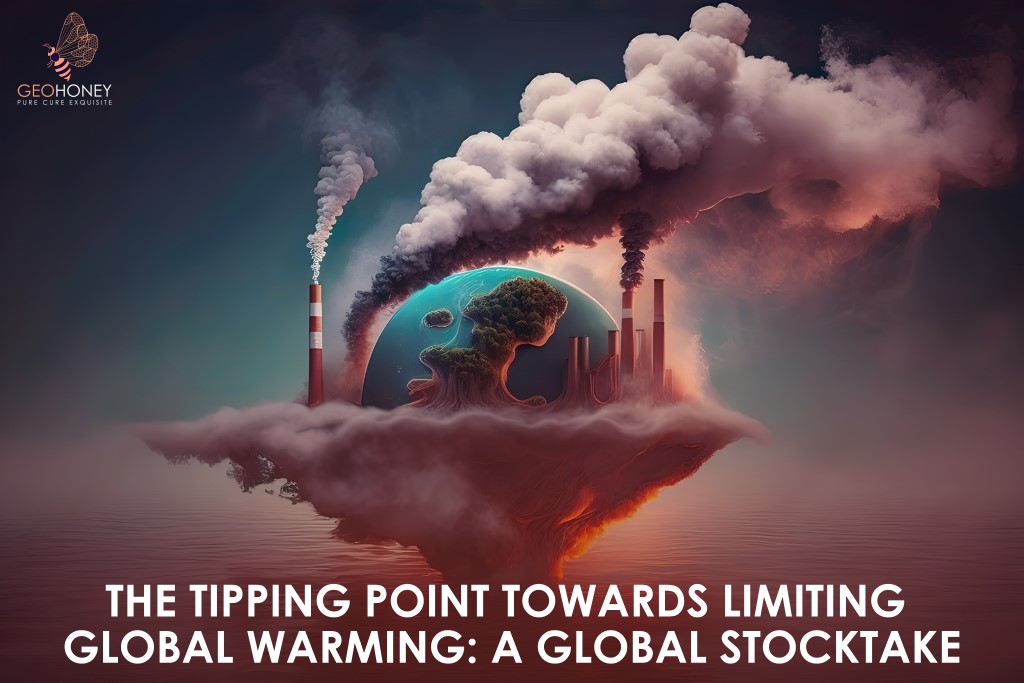- Tokyo: 14:54
- Singapore: 13:54
- Dubai: 09:54
- London: 05:54
- New York: 00:54
To Limit Global Warming, A Global Stocktake “Must be the Tipping Point”

This week, delegates at the Bonn Climate Change Conference concluded the final meeting of the technical conversation for the first global stocktake, setting the groundwork for more aggressive climate action.
"This is a critical year for climate action," UN Climate Change Executive Secretary Simon Stiell said at the forum. "The global stocktake at COP28 must be a watershed moment in which we get back on track to limit warming to 1.5 degrees Celsius."
The global stocktake is a two-year process in which governments and stakeholders assess where they are and are not making progress towards fulfilling the goals of the Paris Climate Change Agreement. It examines everything relevant to where the globe stands on climate action and support, identifying gaps and collaborating to create a better path forward to accelerate climate action.
"The global stocktake is one of the most consequential processes that we are collectively engaged in this year," said Nabeel Munir, Chair of the UN Framework Convention on Climate Change's Subsidiary Body for Implementation. "The third and final technical dialogue meeting concludes the technical assessment phase of the first global stocktake." What you've been doing as a group is not just groundbreaking, but also precedent-setting."
Government delegates, observers, and experts attended the stocktake's third and final technical dialogue, which consisted of a series of roundtables and events stretched over six days at the Bonn Climate Conference. Participants discussed strategies to expedite collective progress on mitigation, including reaction measures; adaptation, including loss and damage; and implementation methods (climate finance, technology transfer, and capacity building). They also provided real-world instances of climate action taken in their countries or by their organisations.
"This technical dialogue has provided us with an important opportunity to present options and tangible ways on how we can enhance our commitments and accelerate implementation at all levels," said Harry Vreuls, Chair of the UN Framework Convention on Climate Change's Subsidiary Body for Scientific and Technological Advice. Many participants emphasised the importance of higher ambition and the urgency of execution in light of equity and the best available knowledge. Participants also emphasised the critical need for scale and speed in adaptation measures and adaptation finance, while also acknowledging progress and major ongoing domestic investments in resilience.
"It is clear that we already have a deep and broad technical understanding of what it will take to course-correct, and to rise to the challenges that are standing in the way of addressing the ambition and implementation gaps before us - across all topics," said Farhan Akhtar, co-facilitator of the first global stocktake's technical dialogue.
Despite recent improvements, the world is still not on track to reach the Paris Agreement's targets.
According to the Intergovernmental Panel on Climate Change (IPCC), global emissions must be roughly cut in half by 2030 in order to keep global temperature rise to 1.5°C. Furthermore, transformational adaptation is required to assist communities and ecosystems in dealing with the climate consequences that are already occurring and are likely to worsen.
The IPCC published its latest Synthesis Report in March of this year, which summarises all of the scientific studies published throughout its sixth assessment cycle. The research demonstrated how far the globe has deviated.
IPCC Chair Hoesung Lee stated last week at the stocktake meeting in Bonn that it is vital to recognise that the report also contains a message of hope.
"The report emphasises that immediate climate action can ensure a livable future for all," Lee said. "The report identifies numerous, feasible, and effective options for reducing greenhouse gas emissions and adapting to human-caused climate change across all sectors." And those change alternatives are currently available."
What comes next?
The technical dialogue co-facilitators will create a summary report of the third and final technical dialogue, which will be released in August.
In early September, the co-facilitators will also provide a synthesis report summarising the important results of the three discussion meetings. It will provide technical knowledge, best practices, and lessons learned to assist Parties and non-Party stakeholders in determining what steps to take to correct course and meet the Paris Agreement goals.
The first stocktake is set to end at COP28, where the technical assessment findings will be presented and their consequences debated and assessed.
The stocktake's High-Level Committee will organise a series of high-level activities during the first week of COP28. The committee will then summarise the events in a set of important political messages and suggestions designed to inform Parties as they reach a decision on the outcome of the global stocktake.
"Party pledges and their implementation are far from sufficient," Stiell remarked. "So, the response to the stocktake will determine our success - the success of COP28, and, far more importantly, our success in stabilising our climate."
Discussions about stocktakes will continue in the coming months to assist prepare for COP28. Conversations, for example, are intended to continue over the Regional Climate Weeks to ensure that the stocktake's outcome is as global and inclusive as possible. Information from work programmes and other events, such as the mitigation work programme and the global goal on adaptation, will also be used to determine the conclusion of the stocktake.
Source: unfccc.int/news



